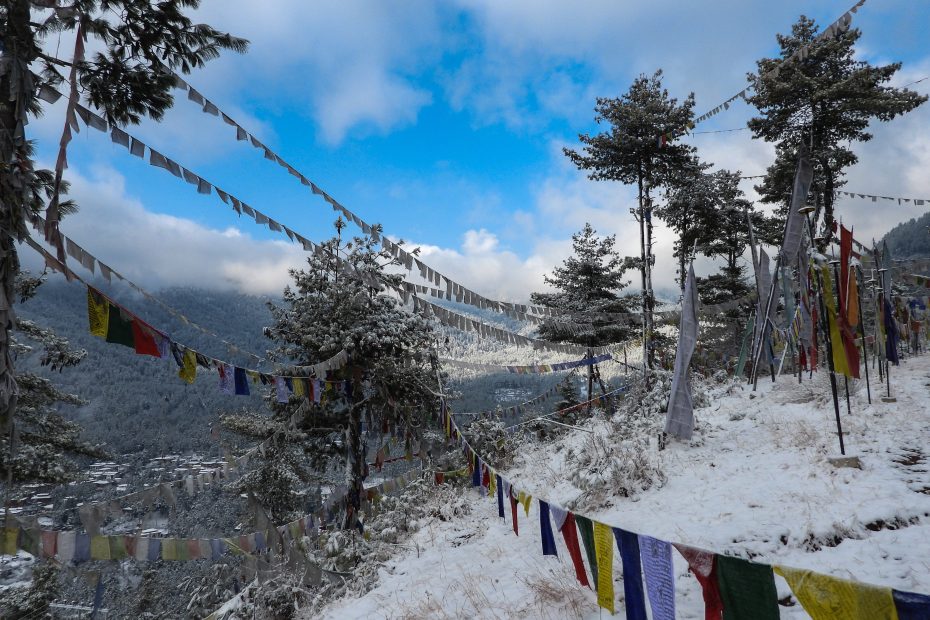Bhutan is a small Himalayan country known for its distinctive culture and vibrant festivals. These celebrations are deeply meaningful for Bhutanese people and play a central role in society. Bhutan’s festivals showcase the country’s living heritage while serving important religious, social and economic functions.
Table of Contents
Major Bhutanese Festivals
The most famous Bhutanese festival is Tsechu, a religious event held in honor of Guru Rinpoche, the saint who brought Buddhism to Bhutan. Tsechu features elaborate costumes, sacred masked dances and colorful processions. It takes place at various temples across Bhutan on auspicious dates.
Losar is the Bhutanese Tibetan New Year marked by feasting and festivities. Families gather to celebrate with offerings, songs and dances. Drupchen involves ritual ceremonies and meditations for seven days, while the lively Thimphu Drubchen includes dramatic reenactments of Bhutan’s history.
Religious Significance
Most Bhutanese festivals have Buddhist roots and serve to spread Buddhist teachings. They facilitate spiritual purification through meditation, prayer and blessings. Masked dances act out stories of Buddhism’s fight against evil spirits. Festivals renew people’s faith and strengthen their devotion.
Vibrant Celebrations
Festivals spark excitement among Bhutanese with their colorful, mesmerizing events. Dancers wearing elaborate silk brocade costumes and symbolic masks perform sacred choreography. Locals make offerings and receive blessings. The sounds of gongs, drums, horns and cymbals fill the air. It creates a magical atmosphere.
Community Gatherings
Festivals provide opportunities to bond with family and friends. People come together from remote villages dressed in their finest traditional clothes. They exchange news, share food and reunite over local arts and games, bringing vibrancy to communities. Lively markets with food stalls and craft bazaars spring up around festival grounds.
Promotion of Arts
The festivals prominently display Bhutan’s impressive range of traditional arts. Mask makers, painters, weavers, carpenters and more contribute their skills. Performances showcase Bhutan’s ancient dances passed down through generations. Storytelling, poetry and literary recitations allow masters to share wisdom. Musicians play Bhutan’s iconic instruments.
Boost to Economy
As most festivals are open to tourists, they help generate tourism revenue and promote local businesses. Hotels and shops get more customers. Locals earn income selling regional foods, handicrafts and souvenirs. Companies catering to tourists and event management see a surge in demand. The festivals benefit many sectors.
Cultural Identity
For Bhutanese people, festivals reinforce their cultural identity and national pride. The celebrations spotlight Bhutan’s distinct traditions, strengthen people’s sense of belonging and solidarity, and keep heritage alive. They transmit traditional values and knowledge to younger generations.
Looking Ahead
As Bhutan modernizes, balancing growth and tradition remains crucial. Engaging youth in festivals instills cultural appreciation. Adapting celebrations to suit new technologies and lifestyle changes keeps them relevant. With prudence, Bhutan’s festivals can continue uplifting communities for centuries to come.
In summary, Bhutan’s vibrant festivals hold special meaning for locals while welcoming the world to experience authentic Bhutanese culture. These lively celebrations strengthen communities, beliefs, arts and the economy. Protecting this living heritage remains vital for Bhutan as the nation progresses.
FAQ:
Q1. What is the religious significance behind Bhutanese festivals?
Most Bhutanese festivals have Buddhist origins and serve to spread Buddhist teachings and facilitate spiritual purification through offerings, blessings, prayers and meditation. The dances and reenactments act out Buddhist legends and principles.
Q2. Which major festival features dramatic reenactments of Bhutan’s history?
Thimphu Drubchen is known for its elaborate reenactments of legendary wars and battles from Bhutan’s history performed by masked dancers accompanied by music.
Q3. How do the festivals economically benefit Bhutan?
The festivals boost tourism revenue as international visitors flock to attend the events. Local businesses like hotels, restaurants, tour operators and souvenir shops thrive catering to the heightened visitor numbers.
Q4. Why are festivals important for preserving Bhutanese culture?
The festivals pass down ancient arts, traditions and values from generation to generation. They reinforce Bhutanese cultural identity and a sense of community. Keeping the celebrations alive preserves Bhutan’s living heritage.
Q5. How are festivals adapting for modern times?
Some adaptations include using technology like lighting and sound systems during events, promoting festivals on social media, developing better infrastructure to accommodate visitors, and adjusting some dates to suit school terms.
